-
 +1 +1
+1 +1Under the Radar with Mary Trump | Erosion of Health Standards
-
 +3 +1
+3 +1You Will NEVER EAT Vegetable Oils Again After WATCHING THIS! | Dr. Nina Teicholz
-
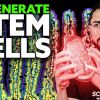 +2 +1
+2 +1What I've Been Waiting For: How To Shield Your Gut from Stress
-
 +3 +1
+3 +1Rethinking Obesity: Time to Stop Blaming Calories
-
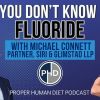 +3 +1
+3 +1FLUORIDE DANGERS YOU DON'T KNOW ABOUT [with Michael Connett] - 2024
-
 +37 +7
+37 +7Your Gut Microbiome: The Most Important Organ You’ve Never Heard Of | Erika Ebbel Angle | TEDxFargo
-
 +39 +11
+39 +11NSFW Once taboo, now good for you: the psychology of masturbation - ABC podcast
From self-love, to disordered behaviour, and back again, how our perceptions of masturbation have changed over the course of history and why it's still linked to shame and confusion for some. Also — why do humans (and other animals) masturbate in the first place?
-
 +42 +10
+42 +10There's a Surprisingly Easy Way to Remove Microplastics From Your Drinking Water
Tiny fragments of microplastics are making their way deep inside our bodies in concerning quantities, significantly through our food and drink.
-
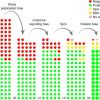 +2 +1
+2 +1Antidepressant efficacy is inflated by the cumulative impact of publication bias, outcome reporting bias, spin, and citation bias on the evidence base
It seems similar bias is likely in other fields of health treatment and science.
-
 +40 +6
+40 +6Autism could be diagnosed with stool sample, scientists say
Researchers found differences in the gut microbes of autistic people, raising hopes for faster diagnosis
-
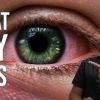 +2 +1
+2 +1How to Treat Dry Eyes Like an Ophthalmologist
-
 +35 +7
+35 +7Forever Chemicals Seep Through Human Skin, Alarming Study Confirms
An inescapable form of human pollution is seeping into our bodies in ways we never fully realized.
-
 +28 +4
+28 +4Human culture is changing too fast for evolution to catch up – here’s how it may affect you
Human culture has changed too fast for evolution to keep up. A theory that can help explain why we respond poorly to modern conditions, despite the choices, safety and other benefits they bring, is evolutionary mismatch.
-
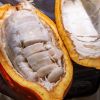 +26 +5
+26 +5Scientists Reinvent Chocolate With Secret Ingredient – It's Healthier And Less Wasteful
To make the signature flavor palatable as a sweet treat, chocolate manufacturers combine a paste made from cacao seeds with sugar. Lots and lots of sugar – often enough to rival all the other ingredients combined, in fact.
-
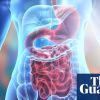 +24 +2
+24 +2Bowel disease breakthrough as researchers make ‘holy grail’ discovery
Scientists pinpoint driver of IBD and other disorders with work under way to adapt existing drugs to treat patients
-
 +26 +6
+26 +6Nearly 80% of Americans now consider fast food a 'luxury' due to high prices
Americans say they are scaling back on their fast food intake, and the vast majority considers those on-the-go meals as a luxury due to high prices, a new survey reveals.
-
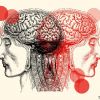 +34 +2
+34 +2Many mental-health conditions have bodily triggers
Psychiatrists are at long last starting to connect the dots
-
 +30 +4
+30 +4Diabetes Truth and American Diabetes Society update!
-
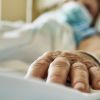 +26 +4
+26 +4Infections after surgery are more likely due to bacteria already on your skin than from microbes in the hospital − new research
Most infection prevention guidelines center on the hospital environment rather than the patient. But the source of antibiotic-resistant microbes is often from the patient’s own body.
-
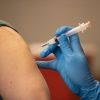 +29 +10
+29 +10Vaccine breakthrough means no more chasing strains
Scientists at UC Riverside have demonstrated a new, RNA-based vaccine strategy that is effective against any strain of a virus and can be used safely even by babies or the immunocompromised.
Submit a link
Start a discussion




















